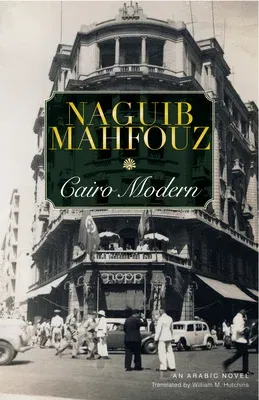The novelist's camera pans from the dome of King Fuad University (now
Cairo University) to students streaming out of the campus, focusing on
four students in their twenties, each representing a different trend in
Egypt in the 1930s. Finally the camera comes to rest on Mahgub Abd
al-Da'im. A scamp, he fancies himself a nihilist, a hedonist, an
egotist, but his personal vulnerability is soon revealed by a family
crisis back home in al-Qanatir, a dusty, provincial town on the Nile
that is also a popular destination for Cairene day-trippers. Mahgub,
like many characters in works by Naguib Mahfouz, has a hard time finding
the correct setting on his ambition gauge. His emotional life also
fluctuates between the extremes of a street girl, who makes her living
gathering cigarette butts, and his wealthy cousin Tahiya. Since he
thinks that virtue is merely a social construct, how far will our
would-be nihilist go in trying to fulfill his unbridled ambitions? What
if he discovers that high society is more corrupt and cynical than he
is? With a wink back at Goethe's Faust and Henry Fielding's Joseph
Andrews, Mahgub becomes a willing collaborator in his own corruption.
Published in Arabic in the 1940s, this cautionary morality tale about
self-defeating egoism and ill-digested foreign philosophies comes from
the same period as one of the writer's best known works, Midaq Alley.
Both novels are comic and heart-felt indictments not so much of Egyptian
society between the world wars as of human nature and our paltry
attempts to establish just societies.

